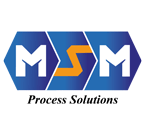
Case Study : MSM Process Solutions Pvt. Ltd.
EXECUTIVE SUMMARY:
This case study chronicles the successful transformation of MSM Process Solutions Pvt. Ltd., a job production company specializing in pharmaceutical equipment, through the adoption of workplace organization strategies. The implementation of methodologies such as 5S, Lean, JH (Job Handling), and Kaizen resulted in notable improvements in productivity, safety, and employee morale. The initiative fostered a sustainable culture of efficiency and continuous improvement.
INTRODUCTION:
MSM Process Solutions partnered with Integral Engineering, a prominent manufacturer equipped with advanced CNC manufacturing capabilities, to address operational challenges and foster a workplace culture of excellence. The adoption of workplace organization principles aimed to streamline operations and instil long-term behavioural shifts toward continuous improvement.

PROBLEM STATEMENT
MSM faced recurring challenges stemming from workplace clutter, inefficiencies, and safety hazards. These issues adversely impacted productivity, employee satisfaction, and overall operational efficiency. The lack of a structured organizational approach hindered the company’s ability to optimize its skilled workforce and advanced manufacturing resources effectively.
DETAILED ANALYSIS
Situation Analysis
A thorough assessment of MSM’s workplace environment revealed:
- Disorganized tools and equipment.
- Excessive time and effort spent on material handling.
- Insufficient emphasis on neatness and cleanliness.
- Safety risks due to cluttered and chaotic workflows.
Stakeholder Analysis
Under the guidance of Mr. Dhananjay Apte, key stakeholders—including production staff, maintenance teams, and management—collaboratively worked toward implementing an organized and efficient workplace environment.
Data and Evidence
Observations and audits conducted over three months (May to July 2024) revealed:
- Significant productivity losses due to disorganization.
- Inefficient use of employee time caused by unnecessary material movements.
- A marked imbalance between Value-Added (VA) and Non-Value-Added (NVA) activities.

Problem-Specific Analysis
Strengths:
- A skilled and experienced workforce.
- Access to advanced manufacturing technologies.
Weaknesses:
- Absence of standardized workplace organization systems.
- Limited awareness of lean methodologies among employees.
SOLUTION EXPLORATION
Proposed Solutions
To address these challenges, MSM adopted the following methodologies:
- 5S Framework:Sort, Set in Order, Shine, Standardize, Sustain.
- Kaizen: Continuous improvement through small, incremental changes.
- Kanban and Poka-Yoke:Visual and error-proofing systems for streamlined workflows.
- JH Activities:Improved job handling through enhanced organisation and safety protocols.
IMPLEMENTATION PLAN
Mapping and Gap Analysis:
Identifying inefficiencies and areas of improvement.
Staff Education:
Comprehensive training programs on 5S, Lean principles, and JH activities.
Device Formats:
Creation of structured formats for data collection and analysis.
Regular Audits & Monitoring:
Ensuring adherence and tracking progress.
RESULT AND IMPACT
Outcome Analysis (Post-Implementation)
Within 30 days of implementation, the following outcomes were observed:
- Time Saved: 7,445 minutes saved across operations.
- Stress Reduction: 69% reduction in employee stress levels.
- Resource Utilization: Stable occupancy rates over three months.
- 5S Compliance: 3S score increased by 67%.
- Reduction in WPO Hurdles: From 41% to 21.43%.
- Employee Idleness: Reduced from 10% to 5%.
Long-Term Effects
The improvements extended beyond immediate results, embedding a culture of efficiency and fostering ongoing adherence to best practices.

LESSONS LEARNED
- Employee involvement is critical to the success of organizational changes.
- Regular audits and feedback loops ensure the sustainability of improvements.
- Continuous training, motivation, and reinforcement are essential to fostering a culture of excellence.
CONCLUSION AND RECOMMENDATIONS
The case study underscores the effectiveness of workplace organisation methodologies in transforming MSM’s operational environment. The implementation of 5S, Lean, JH, and Kaizen not only addressed existing inefficiencies but also laid the groundwork for sustained productivity and employee satisfaction.
Recommendations:
Regular training sessions to reinforce best practices.
Periodic audits to monitor adherence to the 5S framework.
Employee recognition programs to incentivize engagement and motivation.
APPENDICES AND REFERENCES
- Audit reports highlighting pre- and post-implementation conditions.
- Training materials used during the 5S and Lean sessions.
- Employee feedback on the implementation process and its impact.
CORE DRIVERS
By prioritizing employee well-being alongside operational efficiency, MSM’s transformation reflects the organisation’s commitment to a workplace culture that values safety, inclusivity, and continuous learning. This approach not only addresses immediate challenges but also builds a foundation for enduring success.





